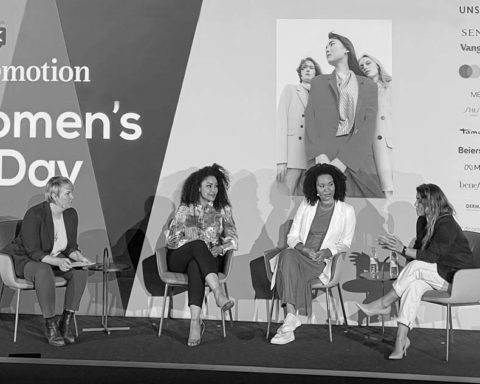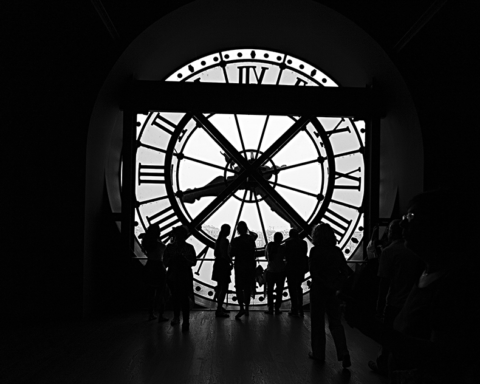Eine der mitreißendsten Erzählformen in Büchern, Serien oder Filmen ist wohl die Perspektive des Protagonisten. Egal wie weit man als Leser oder Zuschauer von der Lebenswirklichkeit der Figur entfernt ist, reift mit jeder gemeinsam verbrachten Stunde die Verbundenheit zu ihr und damit auch das Verständnis für ihr Handeln. Als sowohl hinsichtlich des Alters als auch des Lifestyles klarer Teil der Generation Y, möchte ich Ihnen eine kurze Innensicht dieser aktuell so beliebten Käuferschicht gewähren.
Ohne mich selbst allzu wichtig nehmen zu wollen, erscheint mir die Investition von Marketingbudget zum Erreichen von Millenials (und damit auch mir) alles andere als falsch. Gemeinsam mit der auf uns folgenden Generation Z sind wir die aktuellen und zukünftigen Abnehmer von quasi allem und haben schon sehr früh gelernt, wie die Sache mit dem Konsum funktioniert. Blöd nur, dass wir genau aus diesem Grund von so gut wie allen Marken erreicht werden wollen und uns zu allem Übel auch noch auf so vielen Kanälen bewegen, dass niemand weiß, wo das Mediabudget nun am besten aufgehoben ist. Erschwerend hinzu kommt außerdem diese verdammte consumer awareness, die bereits im Kindesalter in uns Millenials gesät wurde und auf den Punkt bringt, was mit Packards Geheimen Verführern angefangen und in Don Draper seinen wohl attraktivsten Botschafter gefunden hat: Werbung manipuliert. Kein Wunder also, dass der Anspruch an Markenkommunikation vor allem bei Millenials immer höher wird.
Eine andere Geschichte ist die Sache mit der Bindungsfähigkeit. Es ist kein Geheimnis, dass das Internet (nicht erst seit Trump) Amerika als Ort der unbegrenzten Möglichkeiten abgelöst hat. Kein Wunder also, dass diese Instanz, die uns Millenials quasi mit erzogen hat, unverkennbaren Einfluss auf unser Selbst- und Weltbild genommen hat. Die meisten von uns haben sich dadurch zu informierten, weltoffenen, politisch korrekten und trendbewussten Individuen entwickelt, die sich mit offenen Augen und Ohren in der (Netz-)Welt bewegen. Vor allem aber manifestiert sich der Einfluss des Internets in einer ganz deutlichen Erkenntnis: WIR sind einer von vielen und damit absolut ersetzbar. Ein kurzer Swipe bei Tinder. Eine schnelle Suche auf LinkedIn. Irgendwer findet sich immer, der besser, schneller oder vielleicht auch einfach nur lauter ist als wir und direkt bereit ist, unseren Platz als Partner, Arbeitnehmer oder wer-weiß-was-noch einzunehmen. In erster Instanz sind WIR eine Summe von Profilen, deren Pflege im Zweifel mehr Zeit in Anspruch nimmt, als wir für unser analoges Leben aufzubringen bereit sind.
Trotzdem oder vielleicht gerade weil wir von Konkurrenz und Unsicherheiten umringt sind (Arbeitsmarkt, Klimawandel, Trump, Putin, Rente, Nordkorea, muss ich noch mehr nennen?!), haben wir uns damit arrangiert, dass Besitz nicht Sicherheit, sondern eher Sorgen bedeutet. Im Zuge von Airbnb, Netflix, Spotify und Car2Go mutieren die Konsumkinder langsam aber sicher zu Minimalisten – eine Entwicklung, die mit dem Erfolg von Kleiderkreisel und dem Start von Fashion-Leasing-Modellen gerade auf das nächste Kapitel zusteuert. Nach Jahren blinden Konsums spielen plötzlich Themen wie Überfluss, soziales Bewusstsein und Gemeinschaft wieder eine Rolle. Online-Netzwerke bringen Menschen zusammen, deren Beziehungen über das digitale Leben hinaus geht und die gemeinsame Ziele und Projekte verwirklichen.
Wir wollen uns also nicht binden, keinen Besitz anhäufen, haben traditionelle Werbeformen seit langem durchschaut und sind damit wohl der Albtraum jedes werbewilligen Unternehmers. Verzweiflung pur und genau der richtige Zeitpunkt, um einen Blick auf bewährte Konzepte aus dem Marketing zu werfen. Kevin Roberts hat als Begründer des Prinzips Lovemark im Jahr 2004 verdeutlicht, dass Geschichten und Mysterien, Sinnlichkeit und die Gefühle Intimität und Verbundenheit starke Treiber von Beziehungen zwischen Konsument und Marke sind. Ich weiß, ich weiß – wir haben gerade festgestellt, dass ausgerechnet Millenials alles andere als Fans fester Bindungen sind. Doch überträgt man die Idee der Lovemark ins Hier und Jetzt und richtet sie an den Kerneigenschaften von uns Millenials aus, beginnt endlich die Geschichte, die ich schon die ganze Zeit erzählen möchte.
– Fortsetzung folgt –
Marketing for Millenials
One of the most stirring narrative forms in books, series or films is probably the perspective of the protagonist. No matter how far away the reader or viewer is from the reality of the character’s life, with every hour spent together the connection to her matures and with it the understanding for her actions. As a clear part of Generation Y, both in terms of age and lifestyle, I would like to give you a brief inside view of this currently so popular group of buyers.
Without wanting to take myself too seriously, the investment of marketing budget to reach millenials (and thus also me) seems to me to be anything but wrong. Together with the Generation Z that will follow us, we are the current and future buyers of virtually everything and we learned very early on how the consumer thing works. It’s a shame that for this very reason we want to be reached by almost all brands and, to make matters worse, we use so many channels that nobody knows where the media budget is best spent. To make matters worse, there’s also this damn consumer awareness that was sown in us millenials when we were kids and which brings to the point what started with Packard’s Secret Seducers and found in Don Draper his probably most attractive ambassador: advertising manipulation. No wonder, then, that the demands on brand communication, especially at Millenials, are becoming ever higher.
A different story is the thing with the ability to bind. It’s no secret that the Internet (not just since Trump) has replaced America as a place of unlimited possibilities. No wonder, then, that this entity, which helped to educate us in Millenials, has had an unmistakable influence on our view of ourselves and the world. As a result, most of us have developed into informed, cosmopolitan, politically correct and trend-conscious individuals who move in the (net) world with open eyes and ears. Above all, however, the influence of the Internet manifests itself in a very clear insight: WE are one of many and thus absolutely replaceable. A short Swipe at Tinder. A quick search on LinkedIn. There’s always someone who’s better, faster or maybe just louder than we are and who is directly ready to take our place as partners, employees or who knows what else. In the first instance WE are a sum of profiles, whose maintenance, in case of doubt, takes more time than we are willing to spend on our analog life.
Despite or perhaps because we are surrounded by competition and insecurities (labour market, climate change, Trump, Putin, pension, North Korea, I have to name more?!!), we have come to terms with the fact that possession does not mean security, but rather worry. In the wake of Airbnb, Netflix, Spotify and Car2Go, the consumer kids are slowly but surely mutating into minimalists – a development that is heading for the next chapter with the success of Kleiderkreisel and the launch of fashion leasing models. After years of blind consumption, topics such as abundance, social awareness and community suddenly play a role again. Online networks bring together people whose relationships go beyond the digital life and who realize common goals and projects.
So we don’t want to bind ourselves, we don’t want to accumulate property, we have long since seen through traditional forms of advertising and are therefore probably the nightmare of every entrepreneur willing to advertise. Pure desperation and exactly the right time to take a look at proven concepts from marketing. Kevin Roberts, as the founder of the Lovemark Principle in 2004, made it clear that stories and mysteries, sensuality and the feelings of intimacy and connectedness are strong drivers of consumer-brand relationships. I know, I know – we have just discovered that Millenials, of all people, are anything but fans of firm bonds. But if you transfer the idea of love marks to the here and now and align it with the core characteristics of us Millenials, the story I’ve been wanting to tell all along will finally begin.
To be continued…





